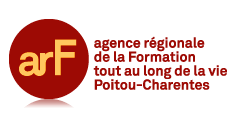7500ème article sur le blog / Les enjeux de la qualité au sein de l’ESS
 Forum régional "Les enjeux de la qualité au sein de l’ESS"
Forum régional "Les enjeux de la qualité au sein de l’ESS"IRIS organise à l'attention des responsables des SIAE de Poitou-Charentes, un forum régional des réseaux de l’IAE sur le thème "Les enjeux de la qualité au sein de l’ESS" le mardi 2 octobre de 9h à 16h30 au Lycée St Jacques de Compostelle à Poitiers.
Ce forum, présentera les différentes démarches "qualité" à l’œuvre au sein des structures d’insertion par l’activité économique. Ces démarches prennent en compte les trois axes de services rendus par la SIAE: aux salariés en transition socioprofessionnelle, aux clients des activités économiques supports et aux territoires. Il lancera le débat sur les enjeux et l’impact de la qualité pour notre secteur, pleinement inscrit dans l’Economie Sociale et Solidaire.
Matinée: Table ronde "Les enjeux de la qualité au sein de l’ESS"
Avec plus de 10 ans de recul, regards croisés entre les principaux réseaux de l’IAE et de l’ESS invités à la table ronde… Les enjeux de départ de la démarche, les orientations du réseau, les points de vigilance, les plus-values pour les salariés en transition, pour l’équipe, pour le territoire,… Eclairage sur la norme ISO 26000.
Après-midi: Ateliers pratiques, pour en savoir plus sur chaque démarche… (CEDRE et CEDRE/ISO 9001, AFAQ/EI-ETTI)
Présentation détaillée de chaque démarche qualité: quelles sont les exigences de la démarche, en s’appuyant sur quel référentiel, comment entrer dans la démarche, avec quel accompagnement?
Pour consulter le programme détaillé de la journée et s'inscrire en ligne, rendez vous sur le site de l'IRIS.
 Les autres repères du blog:
Les autres repères du blog: 7000ème article sur le blog/Osez l'Université dans l'un de ses 31 CFA,
6500ème article sur le blog/Le CV,
6000ème article sur le blog/L'Association ASSPRO,
5500ème article sur le blog/Apprentissage le guide régional,
5000ème article sur le blog/La formation continue des adultes dans le supérieur,
4500ème article sur le blog/40 ans de formation professionnelle,
4000ème article sur le blog/Les chiffres 2010 de la VAE à La Réunion,
3500ème article sur le blog/La VAE en Poitou-Charente en 2010,
3000ème article sur le blog/Contrats apprentissage et pro,
2500ème article sur le blog/Journées Nationales des MDE et des PLIE,
2000ème article sur le blog/Question Formation n°1,
1500ème article sur le blog/Seniors - le groupe SPB signe son accord,
1000ème article sur le blog/Fête de la musique dans les jardins du MESR,
500ème article sur le blog/L'archipel de l'ingénierie de formation,
1er article sur le blog/Un forum de la Commission européenne pour promouvoir la coopération entre l’université et le monde des affaires.
 Regional Forum "The quality issues within the ESS"
Regional Forum "The quality issues within the ESS" IRIS organizes the attention of the SIAE Poitou-Charentes, a regional forum networks IAE on "The challenges of quality in the ESS" Tuesday, October 2nd from 9am to 16:30 in School St Jacques de Compostela in Poitiers. To see the detailed program of the day and to register online, visit the IRIS website.
 Other benchmarks blog: Think Learning - Dare University in one of its 31 CFA/7000ème blog post, The CV/6500ème blog post, Association ASSPRO/6000ème blog post, 5500th Article blog/Regional Learning Guide, 5000th blog post/Continuing education for adults in higher education, 4500th article on blog/40 years of vocational training: assessment and prospects, 4000th blog post/Figures of VAE in 2010 in Réunion, 3500th blog post/VAE in Poitou-Charente in 2010, the 3000th blog post/Learning Contracts and professionalization, 2500th blog post/National Days of MDE and plie, 2000th blog post/Training Question No. 1, 1500th blog post/Seniors: SPB group signed its agreement, the 1000th blog post/music festival in the gardens of MoR, 500th Article blog/Symposium: "The archipelago of engineering education". More...
Other benchmarks blog: Think Learning - Dare University in one of its 31 CFA/7000ème blog post, The CV/6500ème blog post, Association ASSPRO/6000ème blog post, 5500th Article blog/Regional Learning Guide, 5000th blog post/Continuing education for adults in higher education, 4500th article on blog/40 years of vocational training: assessment and prospects, 4000th blog post/Figures of VAE in 2010 in Réunion, 3500th blog post/VAE in Poitou-Charente in 2010, the 3000th blog post/Learning Contracts and professionalization, 2500th blog post/National Days of MDE and plie, 2000th blog post/Training Question No. 1, 1500th blog post/Seniors: SPB group signed its agreement, the 1000th blog post/music festival in the gardens of MoR, 500th Article blog/Symposium: "The archipelago of engineering education". More...





/https%3A%2F%2Fprofilepics.canalblog.com%2Fprofilepics%2F1%2F0%2F1076071.jpg)